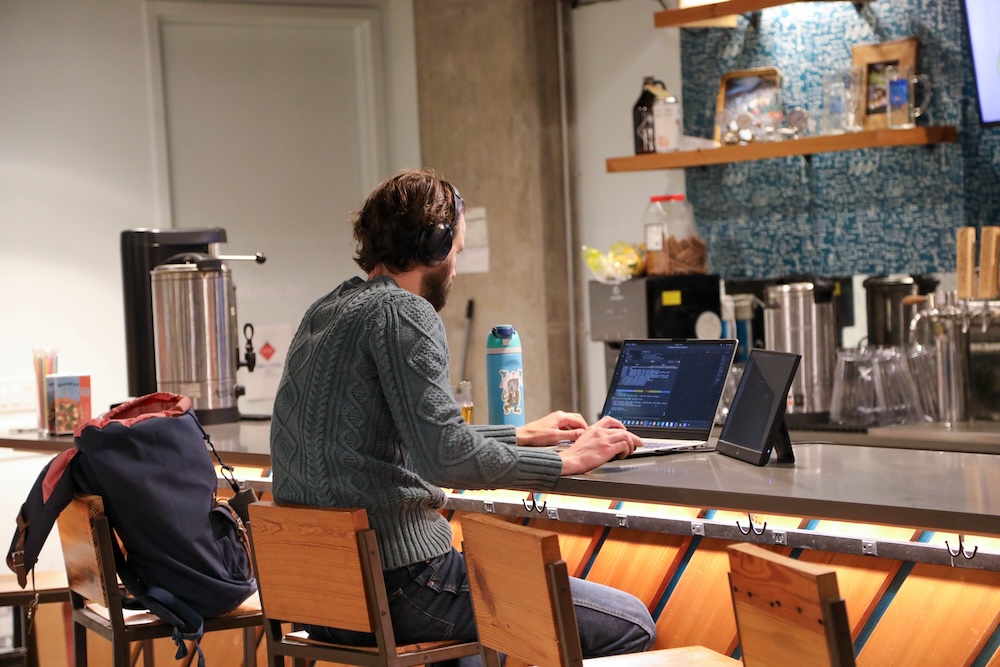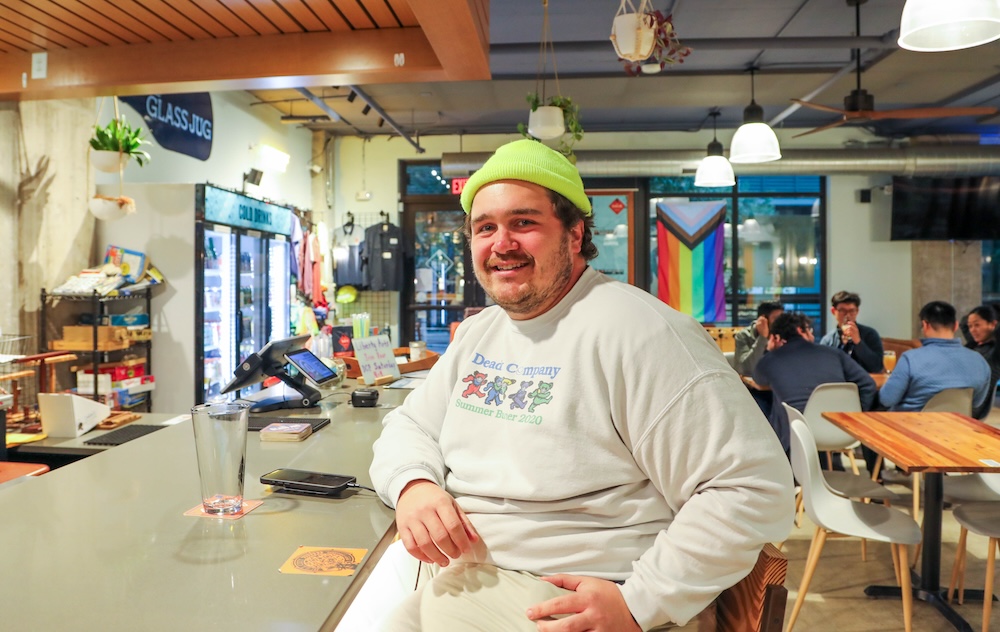Vanessa Hagerbaumer’s experience working from home in the Triangle is not only about what she does; it’s about what she sees.
During a recent phone interview, a deer cut across the window of her Chapel Hill house, causing her to pause mid-sentence. To Hagerbaumer, 46, who currently rents from a friend in Chapel Hill while she seeks a lease in Durham, the brush with nature is a reminder of why she moved from New York City.
“Literally, a deer walked by the window that’s three feet in front of my face, and it has these huge horns, or whatever they called – ‘antlers’ – and it scared the bejesus out of me,” she says.
“You can’t do that in New York.”
The Triangle region is one of the nation’s most popular metro areas for remote working. In 2023, more than 60,000 workers from the Durham-Chapel Hill region — nearly a fifth of the region’s overall workforce — worked from home most days each week, per the Census Bureau’s Journey-To-Work Report. According to analysis done by Coworking Mag, Durham ranked ninth among major U.S. cities for the largest share of remote workers in 2023, tying with Tampa. Raleigh ranked second.
Durham, Chapel Hill, and Raleigh have consistently ranked above national averages for remote working over the past decade, according to the magazine’s analysis. While remote work peaked across the United States during the pandemic, it has remained higher than pre-pandemic levels in the years since.
For some members of this workforce, Durham’s main draw was the presence of family.

When Hagerbaumer was laid off from her job in events planning in New York during the pandemic, she started her own leadership and life coaching company. In late 2023, she decided to move full-time to the Triangle. She followed two sisters and her mother in moving to the area.
“I had the opportunity to go anywhere in the United States,” she says. “Durham was one of those places, because of my family, [where] I already had the network.”
Hagerbaumer’s experience is not unique. For Bill Bailey, 50, family was a similar motivation. Bailey, who works in digital marketing for UC Berkeley, moved to Durham from Washington, D.C. with his husband in 2020.
The move brought Bailey closer to his sister, several aunts, uncles, cousins, and in-laws, all of whom live in the Triangle.
After spending 20 years in D.C., Bailey and his husband also felt ready to live somewhere that offered more space.
“We were stuck in our 650-square-foot townhouse with our dog and our needy cat,” Bailey says.
Matt Gladdek, the Durham Chamber of Commerce’s vice president of economic development, thinks Durham’s large tech sector also helps explain the city’s high number of remote workers.
“We have so many tech offices here already, since before the pandemic,” he says.
“The places that have the highest amount of work-from-home workers are those highly concentrated in tech and white-collar professional jobs that don’t necessarily require a lot of in-person collaboration.”
Brent Guffy, 31, is one of those tech workers. He is a solutions engineer at Xperi, a software company with an office in Durham. He moved here from central Pennsylvania in early 2019 seeking a change, and because his cousin lived in Durham and had an extra couch where he could sleep.
Eventually, Guffy decided to stay.
“I had visited before and could see that Durham was really up-and-coming,” Guffy says. “There were a lot more jobs happening, a lot more buildings coming up.”
His current job has a hybrid schedule, allowing him to work at home twice a week. On his remote Fridays, he usually works from the Glass Jug, where Downtown Durham Inc. hosts a weekly co-working and networking social. He also sometimes ventures out to Durham’s coffee shops, like nearby Foster Street Coffee, across the street from the Glass Jug.
“I think Durham has a big coworking scene,” he says.
Durham’s unique cultural scene also appeals to some remote workers. While family was an important factor to Bailey, he says, the local culture was an added draw.
“[Durham] just felt so much cooler than Raleigh,” he says.
“The overall vibe in Durham — the charming downtown, the cute little boutique hotels, and the great restaurant scene — all of the cool centers of gravity really pulled us in.”
Hagerbaumer acknowledges that she sometimes misses things about New York.
“Do I miss the bars and restaurants from New York? Yes, but there’s enough going on from a cultural standpoint that I don’t feel like I’m in a wasteland,” she says.
She also finds the atmosphere in Durham more conducive to making friends and socializing than in fast-paced New York, where she says relationships often felt more transactional.
“It’s been incredibly easy for me to make connections,” she says of Durham. “I don’t know what the components are: The southern-ness of it, the less-striving nature of a smaller city, the time that people have.”
“I feel very much welcomed with open arms.”
When Hagerbaumer wanted to network with other freelancers, she decided to host her own happy hour events through Triangle Freelancers Social, a group that she helped to revive after the pandemic. Getting the group going was easy, she says.
“Durham is a town where you can start something.”
Above: Brent Guffy is among Durham’s many tech workers who work remotely at least part of the time. Photos by Abigail Bromberger — The 9th Street Journal
Lauren Pehlivanian










